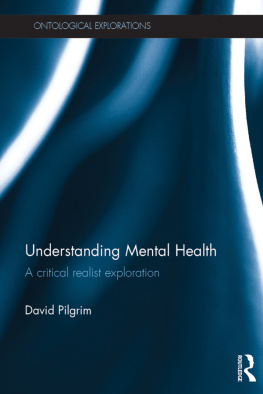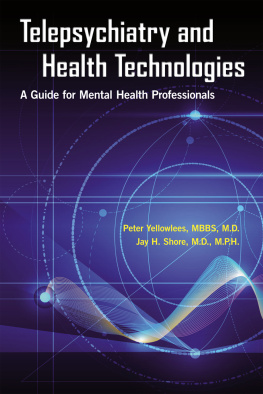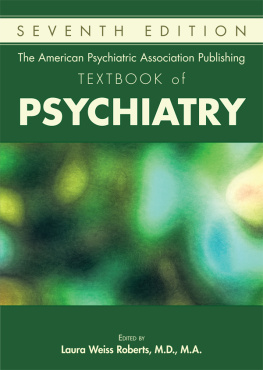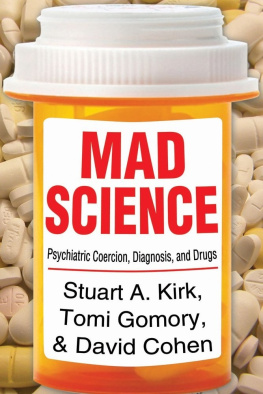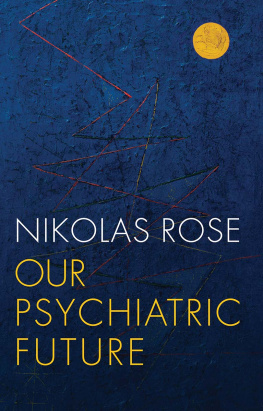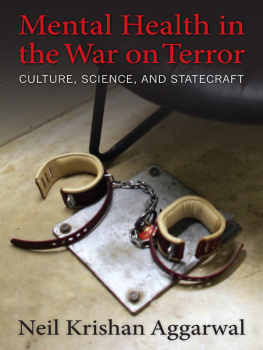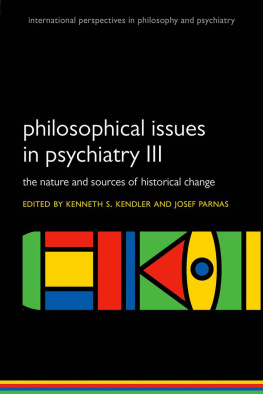Introduction
Most of this book attempts to prioritise ontology in discussions about mental health. So many of these have been concerned with knowing, not being, and so epistemological arguments have been centre stage. Critical realism is not unconcerned with epistemology (not at all), but the reality of the actions of those who for now are diagnosed as being mentally disordered and the relevant real antecedents of those actions can get lost when epistemic matters dominate research. This analytical shortcoming has been evident even amongst political critics of orthodox psychiatry, not just its defenders.
Many critics have tended to focus on people surviving psychiatric oppression and public prejudice, which are legitimate concerns, but they have evaded difficult challenges around the reality of the impact of the incipient or identified patients behaviour contingently on a moral order in a particular time and place. Sometimes even the reality of childhood adversity, to which I return emphatically later in the book, can be played down in arguments about a patient surviving professional oppression and public rejection post-diagnosis.
Synchronic discursive arguments about the here and now or those overly focused on stigmatisation may risk ignoring the diachronic matter of causal antecedents to account for what the labelling theorists have called primary deviance. Some of us some of the time really are distressed or unintelligible or incorrigible. Other people get upset about these forms of conduct. Social consequences have to be dealt with. This messy reality needs a fair exploration. And that messy reality includes real oppressive relations from the past impacting on the present, which are discerned or might be shrouded in mystery.
In the light of this imbalance in the field, I will start with the crisis of psychiatry. The profession has struggled to cope with external critics and particularly its internal dissenters for the past fifty years. And, as I will demonstrate later in the book, the more that psychiatric theory and practice have been promoted, the worse the mental health of humanity seems to have become. It has failed monumentally as a medical project, but, like lemmings, the defenders of its orthodoxy seem to plough on towards the cliff edge (Craddock et al. , 2008; cf. Pilgrim and Rogers, 2009).
And crisis is a word certainly relevant to the role of psychiatry in another way. All psychiatric crises are social crises (Bean, 1980). When the latter emerge because the conduct of incipient patients has become contingently unacceptable or frightening to others, then the power of those significant others and of the professionals they entreat will be enacted to ensure social control. The role will be imposed, maybe invoking fear or anger in the identified patient, not embraced in gratitude by them.
In the British context of today that process is called being sectioned, reflecting the use of a section of the current Mental Health Act. Under Victorian legislation all patients were certified as being insane by the courts (a position that changed after 1930 in Britain). We have a recent cultural tradition of the state, its agents, and those sane by common consent regularly working in unison to control those who they deem require that control. Any of us will go beyond the normative pale at our peril. That is why the fear of unfair detention in our current culture is almost as great as the fear of madness itself and why we have invented legal rules to manage that anxiety in the public imagination.
Because all psychiatric crises are social crises, what happens in particular situations depends on this interplay between the meanings attributed by those involved and the relative powers they hold and might deploy in action. Their meaning-saturated actions in turn have consequences, which create a contingent feedback loop for those actors. This loop contributes to and might alter or reinforce the impact of pre-existing generative mechanisms. If the voluntary patient gains succour and new meaning from their help seeking, then their expressed need will have been satisfied and a mutually negotiated and agreed improvement in mental health might emerge. On the other hand, if the power held and expressed by those who are sane by common consent is distressing to the identified patient, then the latter may resent and so resist current and future engagement with mental health professionals. At this point psychiatric oppression emerges as an aspect of reality in the social relations of modern societies.
And following from these actual and everyday scenarios, which are to various degrees empirically codified and recorded for clinical and social administrative purposes, hares are then set running about the morality and evidential justification of psychiatric theory and practice. The profession, quite understandably, has been attacked by its critics for being casually ignorant and arrogant, in equal measure, in relation to the dubious generative mechanisms it posits and the civil liberties it tramples on with seeming impunity. The latter occurs under the cloak of respectable legalism during taken-for-granted daily practice. The argument goes that the mentally ill must be treated. The professional right to treat from medicine routinely justifies the deprivation of liberty without trial and the imposition of treatments on patients.
Mental illness: Myth or reality?
The very existence of mental illness was queried by Thomas Szasz, a Hungarian migr in the United States, prodded into a form of rightist and anti-statist libertarianism by his early life under the authoritarian yoke of the Eastern European bloc. He demonstrated that the political left has no monopoly on righteous indignation about personal oppression (Szasz, 1961, 1963). Szasz was a trained psychiatrist and psychoanalyst, and he proposed that mental illness was a metaphor, not a fact, and that coercive psychiatric practice was the modern legacy of witch-finding.
Another psychiatrist and psychoanalyst, the Scot Ronald Laing, and from a different political stable than Szasz, with a penchant for Sartrean existential philosophy, wanted to defy the premise that madness was merely the meaningless chaotic outcome of skin-encapsulated pathology (Laing, 1961, 1968). His aspiration to make the unintelligible intelligible by listening carefully to patients and their families offered us a form of enlightened, if somewhat esoteric, hermeneutics. What has happened to this person in this particular family system and what is their madness signalling?
In the wake of the native fascist love of strong order and hatred of weakness in his defeated warring country, the Italian psychiatrist Franco Basaglia defended the right to liberty and citizenship of his patients, who were very evidently both weak and disorderly and had paid the personal price of institutionalised misery. The French philosopher and historian of ideas Michel Foucault also endorsed the need to re-discover means of respectful dialogue between sanity and madness within his emerging wider critique of the modern episteme. American labelling theorists like the sociologists Erving Goffman and Thomas Scheff were interested in the particular contingencies under which some rule transgressions and role failures were medicalised, such that deviance was publicly identified and consequently amplified because of stigmatisation and social rejection.
These attacks upon the moral worthiness and epistemological credibility of orthodox psychiatry provoked strong conservative defenders of the professional faith (Hamilton, 1973; Wing, 1978). These reactive and reactionary ripostes argued that a global anti-medical and anti-scientific conspiracy was afoot. Although there was certainly an international dimension to this criticism, it certainly was not coordinated. The protagonists operated separately and did not always concur on their views and reasons for them (when and if they were aware of one another).

